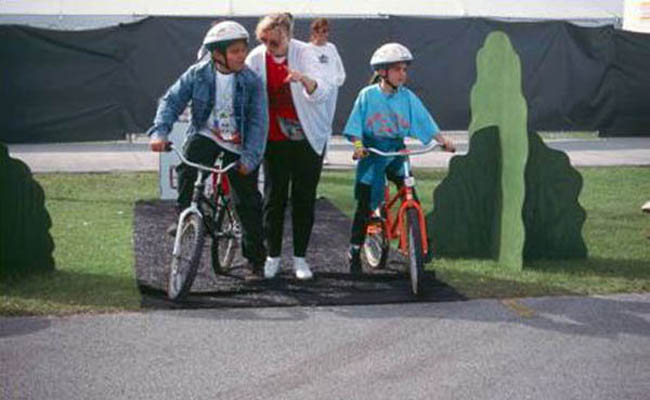
The benefits to your child of learning to ride a bike are truly legion. From remaining healthy to gaining confidence and from making friends to mastering independence, biking teaches a host of skills with little effort on the part of parents. Cycling is a skill that once mastered, remains for life.
Children’s bikes are generally designed to be easy for children to cycle on, which makes childhood an ideal time for your child to begin learning and reaping the benefits of bicycling. But well-intentioned parents often push their children so hard that they undermine the life lessons taught by cycling.
Here are five things you should never do.
1. Forcing Your Child to Ride a Bike
As soon as children are forced into anything, it begins to feel like punishment. Anyone who has been told they have to do something will surely know just how off putting that can be. Cycling should give your child an exhilarating feeling of freedom and independence. Don’t force an uninterested child to ride a bike, and never use biking as a punishment.
Instead, foster an environment in which biking is viewed as a fun and rewarding activity. When purchasing your kids’ bikes try to get their opinion on colour style etc and encourage your children to see biking as a privilege that you are giving them now they are responsible enough to be trusted Never mandate a specific amount of time on the cycle.
2. Biking for Weight Loss
Biking can help stop the spread of childhood obesity and can help your child remain physically fit. Today with the rise of digital toys more and more children are leading sedentary lives, which can cause health problems for their whole lives. But telling a child she needs to lose weight is an extremely dangerous and potentially damaging mistake.
Never make your child bike in the hopes that she will lose weight, or tell her you’re teaching her to bike so she can exercise. If your child needs to lose weight, make biking together a fun family activity, but never force your child into it.
Children who have low self-esteem or who believe they must lose weight to be worthy often end up gaining more weight, so instituting any kind of weight loss strategy can backfire.
3. Not Taking Fear Seriously
The first few days on a bike are terrifying to many kids, which is why it is important to get a bike that is age appropriate. For young children the ideal solution is a balance bike. This enables them to build confidence, by initially walking the bike, then riding it like a scooter with one foot on the ground and only when they feel comfortable, can they put both feet on the pegs and balance.
Parents often mean well by telling their kids, “It’s no big deal!” But the truth is that minimizing your child’s fear can destroy their trust in you, and make them much more likely to remain fearful.
If necessary, support your child by holding the seat when they first try to balance. This may be backbreaking for you, as you run along behind, but it will give them confidence and at some point they will take off by themselves. Allow them to learn at their own pace, and teach them the importance of using safety equipment such as helmets.
4. Not Allowing Independence
You may want to bike as a family, but your child is probably itching to ride with her friends. Although young children should never be allowed to bike alone, it’s generally safe for children over 10 to bike in groups of friends so long as they are not on a busy road.
Give your child independence relative to her biking competence. If she’s proven herself to be a safe, trustworthy biker, consider allowing her to go biking with her friends. Organising a picnic in a nearby park where they can all cycle safely can be a lot of fun. This will build their self confidence and help them to learn valuable social skills.
If you feel happier you can always watch from a distance, perhaps have your own picnic with a friend.
5. Not Enforcing Rules
Many children put up such a big fight about wearing helmets that their parents eventually cave in. But there’s a reason that many areas have laws requiring children to wear helmets: helmets are life-saving devices.
Even if your child is biking in the driveway or near home, they can still fall and suffer a catastrophic head injury. Never make exceptions to the rules; allowing your child to cycle without a helmet, will give them the impression they are not essential and that rules don’t really matter and encourage them to break them when you’re not carefully supervising them.
Age appropriate helmets should be worn even when the child is very small and gets their first balance bike, or even a scooter. This will set the practice for life, tell them how great they look in the helmet and if you cycle don’t forget to wear yours.
Christobel Edwards became a grandmother for the first time two and a half years ago. She’s enjoyed this new phase in life, and is learning to let go of her own parenting ideas while developing a close relationship with her grandchild. She writes on a variety of topics, and especially loves writing reviews of childrens’ bikes. She can’t wait to get her grandchild her first bike.
Participation of Parents in Childhood Education: Do You Know The Importance?





